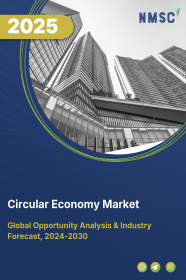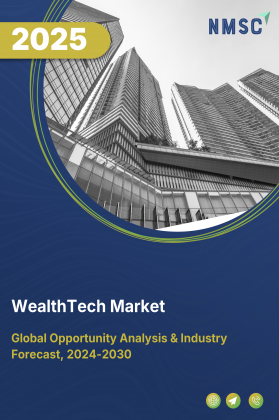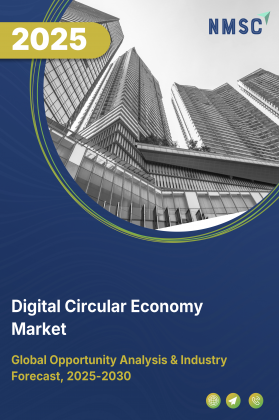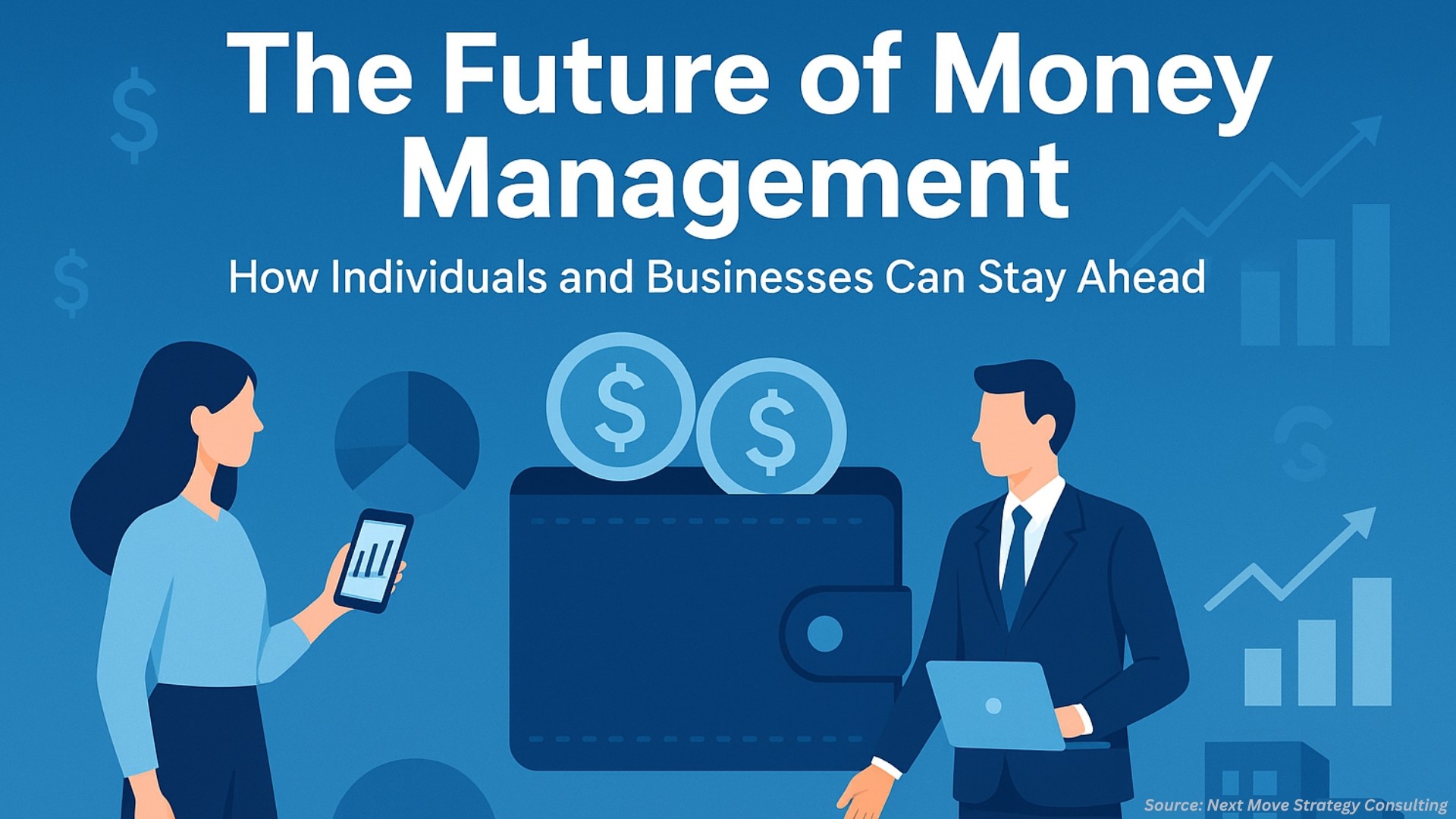
Circular Economy Market by Business Model (Product-as-a-Service / Sharing Platforms, Remanufacturing and Refurbishment, Closed-Loop Material Recovery, Design and Consultancy Services, and Disposal), by Material Streams (Aggregate, Masonry and Soils, Glass, Metals, Organics, Paper and Cardboard, Plastic, Tyres and Rubber, and Garment), by Industry (Textile, Semiconductors and Electronics, Automotive, Construction, and Others) – Global Opportunity Analysis and Industry Forecast- 2024-2030
Market Definition
The Circular Economy Market size was valued at USD 556.0 billion in 2023 and is predicted to reach USD 1323.5 billion by 2030 with a CAGR of 13.2% from 2024-2030. The circular economy industry includes a dynamic and evolving market that revolves around sustainable and regenerative practices in the production, consumption, and disposal of goods and services. It involves a systematic shift from the traditional linear economic model to a closed-loop system, emphasizing resource efficiency, waste reduction, and the continual reuse, refurbishment, and recycling of materials. Companies operating in the circular economy industry are dedicated to creating and adopting environmentally friendly and socially responsible practices across various sectors, including manufacturing, consumer goods, waste management, and renewable energy. Moreover, it reduces the generation of waste by reusing industrial products and materials and contribute to a more sustainable waste management system.
Market Dynamics and Trends
The growing awareness regarding environmental challenges, such as climate change and resource depletion, are compelling businesses and consumers to embrace circular economy practices. This aims to minimize waste and resource consumption by designing products for longevity, reuse, repair, and recycling.
By addressing environmental concerns, such as reducing carbon emissions, conserving natural resources, and protecting ecosystems, the circular economy offers a pathway to achieve sustainable development goals and reduce the adverse impacts of economic activities on the planet.
In December 2023, the U.S. Environmental Protection Agency (EPA) collaborated with the U.S. Department of Agriculture (USDA) and the U.S. Food and Drug Administration (FDA) to reduce food loss and waste highlighting the environmental impacts such as methane pollution, a potent contributor to climate change. This strategy aims to prevent food loss and waste, increase recycling of organics, reduce climate pollution, save money for families and businesses, and support a circular economy.
Moreover, the integration of IoT technology into the circular economy introduces smart solutions for waste management and product lifecycle tracking. It enhances the efficiency of waste collection processes and enables businesses to make informed decisions about maintenance and refurbishment, contributing to the overall sustainability and circularity of products and materials.
For instance, in March 2023, Siemens launched the Connect Box, a smart IoT solution designed to manage small to medium-sized buildings efficiently. It aims to address the challenges of urbanization and climate change while contributing to more sustainable practices in waste management through efficient building operations.
However, high-initial cost for rerouting supply chains to incorporate recycled materials in circular economy restraining the growth of the market. On the contrary, advent of technological advancements such as AI and ML plays a crucial role in the circular economy by enabling predictive maintenance and optimizing recycling processes.
In recycling, AI enhances sorting operations, accurately identifying and categorizing materials, thereby improving the quality of recycled materials and streamlining the recycling supply chain. For instance, in December 2023, Yalo, a conversational AI platform, partnered with the Food and Beverage Recycling Alliance (FBRA) to launch an AI-driven environmental sustainability initiative in Nigeria. This collaboration aims to redefine waste management, recycling, and environmental sustainability by leveraging advanced AI technology to promote responsible business practices and ecological sustainability.
Market Segmentations and Scope of the Study
The circular economy market share is segmented on the basis of business model, material streams, industry, and region. On the basis of business model, the market is divided into product-as-a-service/sharing platforms, remanufacturing and refurbishment, closed-loop material recovery, design and consultancy services, and disposal. On the basis of material streams, the market is categorised into aggregate, masonry and soils, glass, metals, organics, paper and cardboard, plastic, tyres and rubber, and garment. On the basis of industry, the market is divided into textile, semiconductors and electronics, automotive, construction, ecommerce and logistics, oil and gas, healthcare and pharmaceutical, agriculture, energy and utilities, and others. Geographic breakdown and analysis of each of the aforesaid segments include regions comprising North America, Europe, Asia-Pacific, and RoW.
Geographical Analysis
Europe holds the dominant share in circular economy market and is expected to continue its dominance during the forecast period. This is attributed to the factor such as the implementation of stringent regulations and policies concerning waste management, recycling targets, and sustainable product design. Such measures foster an environment conducive for companies to adopt principles of the circular economy, particularly evident in countries including the U.K. and Germany.
According to the Third Generation Environmentalism Ltd (E3G) as of December 2023, the German government's published climate Foreign Policy Strategy marked a significant shift, integrating climate objectives with key international policy areas such as security, energy, foreign trade, fiscal policy, and development cooperation. This strategic move underscores a commitment to addressing the pressing challenges of the climate crisis with a comprehensive and cross-governmental approach.
Also, the growing awareness and consumer demand for eco-friendly products in Germany and other European region is driving the demand for circular economy. This is attributed to the implementation of stringent regulations and policies concerning waste management, recycling targets, and sustainable product design.
According to a study by the German Consumer Centre, more than 70% of German consumers give consideration to sustainability when purchasing cosmetics and personal care products. This strong cultural emphasis on environmental responsibility, coupled with supportive regulations, positions Europe as a leader in the circular economy Market. The region's proactive approach not only fosters innovation and efficiency within its industries but also sets an example for global counterparts in the pursuit of more sustainable economic models.
On the other hand, Asia-Pacific shows a steady rise in circular economy market due to the incorporation of business project and strategies to promote resource efficiency, waste reduction, and sustainable practices in countries such as China, India, and Japan. An illustrative example is the launch of The Megloo project by The Alliance to End Plastic Waste in Japan in November 2022, which underscores a concerted effort to bolster plastic circularity.
This initiative aligns with circular economy goals by addressing environmental sustainability and fostering circular economy practices in plastic usage. Additionally, it signifies a global effort to reduce plastic pollution and enhance resource efficiency.
Moreover, the presence of regional companies that are engaged in various business strategies including partnership to boost the growth of the circular economy market. Recently, Dow, a global materials science company partnered with Mengniu, a leading dairy company in China, to introduce an innovative all-polyethylene (PE) yogurt pouch designed for recyclability. This collaboration marks a significant milestone in the effort to pioneer sustainable dairy packaging solution and promote circular economy in China.
Competitive Landscape
The circular economy market comprising of various market key player such as Adidas AG, Inter IKEA Systems B.V., PepsiCo, Inc., Procter & Gamble, The Coca-Cola Company, Unilever, ADM, BASF SE, H&M Group, HP Development Company, L.P., Dell, Lenovo, Nestlé, Volvo Cars, Dow and others. These market players are adopting various strategies such as product launch and partnership to maintain their dominance in the global circular economy market.
For instance, in November 2023, Winnow developed a smart solution to help reduce food waste in commercial kitchens. Their system consists of a smart bin and a digital scale, which allows kitchen staff to easily track and measure the amount of food waste being generated. This innovative solution provides sustainable and circular economy by developing groundbreaking solutions to tackle different aspects of waste.
Moreover, in August 2023, Enerkem and Technip Energies collaborated to advance waste-to-biofuels and circular chemicals technology deployment. This partnership aims to accelerate the deployment of Enerkem's technology in Europe, North America, and the Middle East, focusing on converting waste into sustainable low-carbon fuels and circular chemicals.
Key Benefits
-
The report provides quantitative analysis and estimations of the circular economy market from 2024 to 2030, which assists in identifying the prevailing market opportunities.
-
The study comprises a deep dive analysis of the circular economy market including the current and future trends to depict prevalent investment pockets in the market.
-
Information related to key drivers, restraints, and opportunities and their impact on the circular economy market is provided in the report.
-
Competitive analysis of the players, along with their market share is provided in the report.
-
SWOT analysis and Porters Five Forces model is elaborated in the study.
-
Value chain analysis in the market study provides a clear picture of roles of stakeholders.
Key Market Segments
By Business Model
-
Product-as-a-Service / Sharing Platforms
-
Remanufacturing and Refurbishment
-
Closed-Loop Material Recovery
-
Design and Consultancy Services
-
Disposal
By Material Streams
-
Aggregate, Masonry and Soils
-
Glass
-
Metals
-
Organics
-
Paper and Cardboard
-
Plastic
-
Tyres and Rubber
-
Garment
By Industry
-
Textile
-
Semiconductors and Electronics
-
Automotive
-
Construction
-
ECommerce and Logistics
-
Oil and Gas
-
Healthcare and Pharmaceutical
-
Agriculture
-
Energy and Utilities
-
Others
By Region
-
North America
-
The U.S.
-
Canada
-
Mexico
-
-
Europe
-
The UK
-
Germany
-
France
-
Italy
-
Spain
-
Denmark
-
Netherlands
-
Finland
-
Sweden
-
Norway
-
Russia
-
Rest of Europe
-
-
Asia Pacific
-
China
-
Japan
-
India
-
South Korea
-
Australia
-
Indonesia
-
Singapore
-
Taiwan
-
Thailand
-
Rest of Asia Pacific
-
-
RoW
-
Latin America
-
Middle East
-
Africa
-
Key Players
-
Adidas AG
-
Inter IKEA Systems B.V.
-
PepsiCo, Inc.
-
Procter & Gamble
-
The Coca-Cola Company
-
Unilever
-
ADM
-
BASF SE
-
H&M Group
-
HP Development Company, L.P.
-
Dell
-
Lenovo
-
Nestlé
-
Volvo Cars
-
Dow
REPORT SCOPE AND SEGMENTATION:
|
Parameters |
Details |
|
Market Size in 2023 |
USD 556.0 Billion |
|
Revenue Forecast in 2030 |
USD 1323.5 Billion |
|
Growth Rate |
CAGR of 13.2% from 2023 to 2030 |
|
Analysis Period |
2023–2030 |
|
Base Year Considered |
2023 |
|
Forecast Period |
2024–2030 |
|
Market Size Estimation |
Billion (USD) |
|
Growth Factors |
|
|
Countries Covered |
28 |
|
Companies Profiled |
15 |
|
Market Share |
Available for 10 companies |
|
Customization Scope |
Free customization (equivalent up to 80 working hours of analysts) after purchase. Addition or alteration to country, regional, and segment scope. |
|
Pricing and Purchase Options |
Avail customized purchase options to meet your exact research needs. |




















 Speak to Our Analyst
Speak to Our Analyst






















